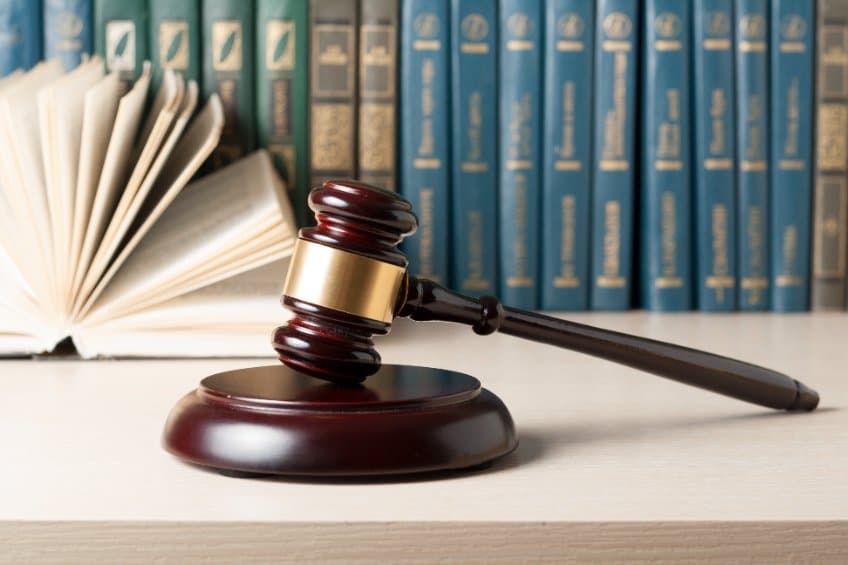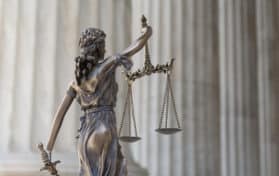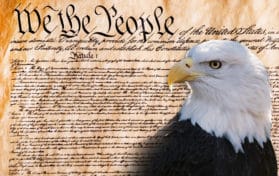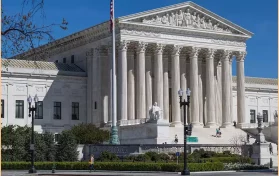
The Supreme Court is looking to the end of the current session within a few short weeks, and Americans have been anxiously awaiting a ruling on Dobbs v. Jackson Women’s Health Center. This is the Mississippi case that would set a restriction on abortions in the state after fifteen weeks’ gestation. Typically, rulings are handed down on Mondays closer to the end of the January – June term, but the Court tends to hand down potentially controversial rulings nearer the end of the term.
In the meantime, the Supreme Court handed down a ruling that many conservatives are hailing as a win for the First Amendment, particularly where freedom of religion is concerned.
On Tuesday, the Supreme Court offered a 6 – 3 ruling in the Carson v. Makin case, a Maine case. The case involved a Maine tuition program that would not allow for funds from this program to be utilized at religious schools. The Court’s ruling holds that the program violated the Free Exercise Clause of the First Amendment because religious schools were excluded from the program.
The purpose of the program was to provide funding so that students without a local public school could attend a local private school, provided that the school was not providing “sectarian or religious” teaching.
Chief Justice John Roberts wrote the opinion behind the ruling. In it, he stated: “Maine’s ‘nonsectarian’ requirement for its otherwise generally available tuition assistance praymetns violates the Free Exercise Clause of the First Amendment. Regardless of how the benefit and restriction are described, the program operates to identify and exclude otherwise eligible schools on the basis of their religious exercise.”
Maine’s Chief Deputy Attorney General offered oral arguments in the case earlier this year. Christopher Taub maintained that the families wishing to utilize the tuition assistance program were not experiencing discrimination because “no family in Maine” was “entitled to” this benefit. Taub said that the state shouldn’t fund schools that “instill religious beliefs.”
Taub also said that if a nonsecular private school was teaching religion in the same manner as a public school that the tuition would be provided.
Roberts took this into account when writing the opinion. Roberts wrote: “So it is the beliefs of the wo religions that determines whether the schools are going to get the funds.” He added that this is a violation of the First Amendment, and the Court ruled that tuition must be provided.
The Supreme Court has become increasingly embattled this term. In May, a draft opinion was leaked that appears to show the Court intends to overturn Roe v. Wade and return the ability to decide how abortions are carried out to each state. In the wake of the leak, the conservative Justices have come under increased pressure to change their vote. There have been protests outside the homes of Justices Kavanaugh, Barrett, and Alito. Justice Alito wrote the draft opinion.
Justice Brett Kavanaugh was the target of an attempted assassination earlier this month. The individual called the police himself before he stepped onto the Kavanaugh property. He admitted to U.S. Marshals during his interrogation that he intended to kill Justice Kavanaugh then turn the weapon on himself.
People continue to protest outside the homes of Justices Kavanaugh and Barrett. Just this week, young women carrying baby dolls and dressed in outfits made to appear as if they are dripping blood have marched outside the home of Justice Amy Coney Barrett.
One pro-choice group, Jane’s Revenge, says that they intend to carry out a “night of rage” if the landmark abortion case is overturned.
Many media outlets are predicting that the Court will release the final opinion on the Mississippi abortion case this week. However, each week there have been rumors swirling that the decision would be handed down “soon” with no results.
It’s important to remember that a decision such as what is in the leaked draft opinion would not outlaw abortion, but would send the decision to each state to decide.





